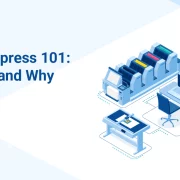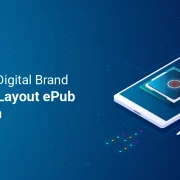
7 Reasons Why You Should Invest in Digitization Training and Development Program
Explore seven key reasons to digitize your training programs: workforce benefits, fewer resources, customization, secure content, diverse formats, enhanced retention, and goal attainment.
The global workforce is changing. As a result, the way businesses conduct operations is evolving.
The days of one-size-fits-all, conventional in-office training are gone. Today, companies need to get smart about how they offer their digitization training and development programs at the workplace.
One method of training that is poised to be effective in 2024 and beyond is online or e-training.
Table of Contents:
- 7 Important Reasons to Digitizing Your Training & Development in 2024
- Benefits All Types of Workforces in the Future
- Reduces the Resources the Company Needs
- Create Modules that Suit the Employee’s Needs at the Moment
- Content Is Safer to Control and Manage
- Combine Multiple Content Formats into a Single Session
- Boosts Learner Retention Rates
- Achieve Organizational Goals Effectively
- How Training Digitization Supports Wider Organizational Objectives?
- Why Choose Hurix Digital?
7 Important Reasons to Digitizing Your Training & Development in 2024
1. Benefits All Types of Workforces in the Future
Buffer’s State of Remote Work Report shows that about 97% of remote employees want to work remotely until retirement. In addition, a Gallup study estimates that around 75% of remote-capable jobs will be remote or hybrid in the long run.
However, only some work remotely. About 70%-80% of the world’s labor market is in deskless/frontline roles.
Despite the many differences between desk-based remote employees and desk-less workers, the two groups have one thing in common: Neither can regularly attend conventional in-office training and development programs.
Digitized T&D programs will allow your firm to seamlessly provide timely and frequent training to all cadres of employees, ensuring that every employee is included.
2. Reduces the Resources the Company Needs
You can store your learning digitization solutions for decades when you convert your T&D content from physical to digital format. Today, with cloud computing getting more advanced, you can securely store your T&D material while scaling your storage needs as your company grows. There’s no need to re-make content every time you have a training session coming up.
For example, your company can use a content authoring and distribution tool like Hurix to create your T&D program, store it in a cloud environment, and share it with whoever you want, whenever you want. Of course, you need to update the content occasionally to match the changing times, but you can only partially re-make the content again.
Also Read: Top 7 Factors to Consider When Choosing Employee Training Software
3. Create Modules that Suit the Employee’s Needs at the Moment
Research shows that skills like blockchain building, innovation management, digital marketing, UX design, and machine learning, amongst others, will be in demand in 2024. However, your employees may only need to learn some of these skills because they may not be relevant to their career trajectory.
When you digitize T&D content, you can ensure it is always available for your employees whenever they need it.
So, let’s say you did a module on blockchain building in 2023. Then, your employees can easily take it up at the start of 2024 and be ready to discharge their jobs as the year progresses. Plus, you can give your team this content in bite-sized pieces.
Micro-content that takes about 1–5 minutes to consume is becoming increasingly popular in 2024. Your team can go through these small pieces of content, repeat practical examples/sessions, and sharpen their skills on their own time. They can even progress from frontline training to managerial training with time. Such content is also more accessible to all your employees.
4. Content Is Safer to Control and Manage
In physical T&D programs, you may need to give out paper handouts and exercise sheets. Or, you may need to share company document printouts. All of these can be sensitive and important to your company’s competitive advantage.
What if these paper documents fell into the wrong hands? It could wreak a lot of damage to your firm. Digitizing T&D material entails creating and sharing only digital copies of the content.
But more than just digitizing, learning is needed. Forecasts by Interpol show that cybercrime is expected to cost $10.5 trillion by 2025. So, you’ll need to have robust protections in place to keep your e-learning modules safe. Luckily, content distribution tools like Hurix also come with Digital Rights Management features and robust data protection elements, which allow you to monitor and control who gets to access your valuable T&D material.
5. Combine Multiple Content Formats into a Single Session
Did you know that 15% of an hour-long meeting/training needs to be recovered in setting up? That’s 9 minutes! Technical issues are a large contributor to this loss of time. From problems setting up the projector to glitches in videos to slow internet connections, a lot can impact how a physical T&D session works, especially when trainers use multi-type content.
Just imagine this happening during every session. How much waste of time, manpower, and resources would that be? Additionally, you may not be able to achieve your goal of using multi-type content for T&D because of these set-up problems.
Digitization training materials can prevent these issues. For one, many digital content creation tools can allow you to create text, memes, GIFs, videos, infographics, polls, quizzes, etc.
Tools like Hurix allow you to club these content formats into a single module, upload them on the distribution platform, and share them with employees for quick consumption.
6. Boosts Learner Retention Rates
Continuing on the thread of multi-type content, did you know that such versatile training modules can increase learner retention rates? For example, while a lecture-style session has about a 5% retention rate and textual readings have a 10% retention rate, an audio-visual session has a 20% retention rate.
Other types of T&D content have higher learning retention rates, such as demonstrations (30%), live group discussions (50%), practice experiments/tests/quizzes (75%), and peer-to-peer learning (90%).
Such training programs can be retained longer and with greater clarity and improve an employee’s work performance. In addition, your staff will easily adopt newly taught skills and techniques, make fewer mistakes, and be more willing to ask for help and learn from others.
This will automatically improve performance, reduce job dissatisfaction, and reduce workforce attrition.
7. Achieve Organizational Goals Effectively
One of the most important reasons for digitization training is that digital platforms like Hurix have robust analytics and reporting features. You can use this tool to monitor the T&D program engagement, course completion, and learner retention rates.
You can then map post-training performance to see whether the training helped upskill your employees. These insights can also be used to change training content that is proving too challenging or ineffective or to reorganize how content is delivered to learners.
Ultimately, your company can keep your larger business goals in mind to craft engaging learning experiences for your team.
How Training Digitization Supports Wider Organizational Objectives?
In a fierce business environment, organizations must embrace innovative methods to accomplish their strategic goals. Learning digitization solutions serve as a powerful instrument for updating learning practices and aligning with larger organizational goals.
By valuing digital learning tools in your training and development (T&D) programs, you can achieve a healthier and more productive working environment for your entire organization. Here’s how adopting digitized training can assist you in reaching essential organizational objectives.
1. Enhancing Employee Onboarding for Faster Success
Digital onboarding offers new employees digitization training that addresses essential skills, company policies, and responsibilities specific to their roles. Employees have the flexibility to engage with these materials at their own pace, making learning more comfortable and manageable.
This adaptable method allows new hires to become valuable team members more rapidly, enabling them to contribute significantly to your organization’s objectives sooner.
Digitization training improves efficiency by optimizing the onboarding process, shortens the time to proficiency, and guarantees a better return on your investment in talent. Supporting employees in reaching their potential more quickly fosters a more united and high-performing team from the outset.
2. Boosting Employee Engagement and Joy at Work
Learning digitization solutions can improve the quality of the training environment and make learning programs more effective for your employees. In contrast to conventional training methods, learning digitization solutions accommodate various learning preferences and enable your team to take charge of their professional development.
Many digitization training platforms also utilize gamification, introducing entertaining elements that reward employees for their advancements and accomplishments. This method makes learning enjoyable while promoting a sense of achievement and motivation.
When employees feel supported in their growth and confident in directing their learning paths, overall job satisfaction increases, resulting in a dynamic and positive workplace environment.
3. Supporting a Culture of Continuous Learning
An important benefit of digitization training is its capacity to promote a culture of ongoing learning within your organization. With digital resources, your employees can readily access current materials, enabling them to acquire new skills and remain relevant in their positions.
This perfectly aligns with your larger organizational objectives, as companies that endorse a culture of continuous learning tend to be more adaptable, resilient, and innovative.
By offering your team programs that involve workshops in training digitization, you equip them to face new challenges and capitalize on emerging opportunities. This dedication to continuous learning improves your competitive edge and keeps your workforce prepared for future challenges.
Also Read: 6 Best Strategies for Unifying EHS Training Across Departments
Why Choose Hurix Digital?
Hurix Digital is a powerful and responsive content authoring and distribution platform designed to empower companies to offer robust training and development programs to their employees.
Hurix Digital’s digitization training platform allows you to do the following:
- Create multi-type content modules.
- Organize modules into learner-specific categories.
- Protect content & intellectual property with powerful DRM and IPR protections.
- Allow learners access based on identity verification.
- Store and back-up T&D modules on the cloud.
- Optimize learning for different devices and OS.
- Track T&D effectiveness and responsively manage outcomes in 2024.
If this sounds like the perfect tool, get our help for content authoring, distribution, and learning digitization solutions.

A highly enthusiastic and motivated sales professional with over twenty five years of experience in solution selling of training-related applications and services. Maintains an assertive and dynamic style that generates results. Ability to establish long-term relationships with clients built on trust, quality of service and strategic vision. Specializes in financial services, higher ed, publishing and government in the areas of learning and development.





